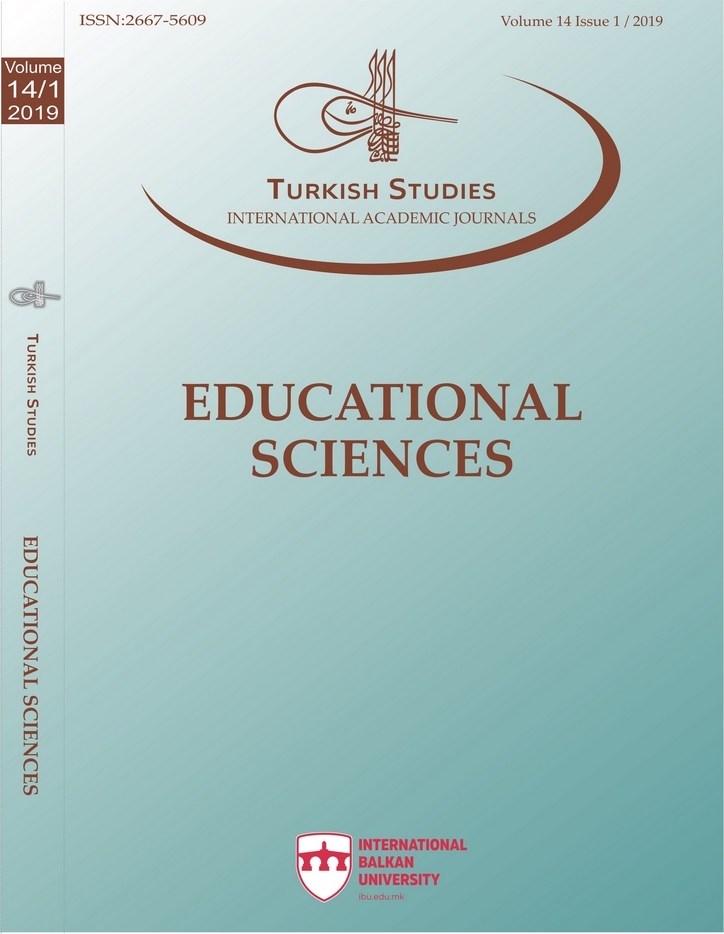PROBLEM-BASED LEARNING STUDIES: A CONTENT ANALYSIS
PROBLEME DAYALI ÖĞRENME: İÇERİK ANALİZİ
___
Baden M. S. and Major, C. H. (2004). Foundations of problem-based learning, New York: Open University Press.Brooks, J. G. and Brooks, M. G. (1999). In search of understanding: The case for constructivist classrooms, Virginia: Association for Supervision and Curriculum Development.
Chiang C. L. and Lee, H. (2016). The effect of project-based learning on learning motivation and problem-solving ability of vocational high school students. International Journal of Information and Education Technology, 6(9), 709-712.
Dolmans, D. H. J. M., Grave, W., Wolfhagen I. H. A. P. and Vleuten, C. P. M. (2005).Problem-based learning: future challenges for educational practice and research. Medical Education, 39, 732- 741.
Duch, B. J., Groh, S. E. and Allen, D. E. (Edt). (2001). The power of problem-based learning: A practical "how to" for teaching undergraduate students in any discipline. Virginia:Stylus Publishing.
Grave, W. S., Dolmans, D. H. J. M. and Vleuten, C. P. M. (1999). Profiles of effective tutors in problem-based learning: scaffolding students. Medical Education, 33, 901-906.
Levin, B. B. (Edt). (2001). Energizing teacher education and professional development with problembased learning, Virginia: Association for Supervision and Curriculum Development.
Neuendorf, K. A. (2002). The content analysis guidebook, The United States of America: Sage Publications.
Saban, A. (2009). Content analysis of Turkish studies about the multiple intelligences theory.Educational Sciences: Theory & Practice, 9(2), 859-876.
Tan, O. (Edt). (2003a). Enhancing thinking through problem based learning approaches: International perspectives, Singapore: Cengage Learning.
Tan, O. (2003b). Problem-based learning innovation: Using problems to power learning in 21st century, Singapore: Cengage Learning.
Trilling, B. and Hood, P. (1999). Learning, technology, and education reform in the knowledge age or "we're wired, webbed, and windowed, now what?" Retrieved November 18, 2018 from: https://www.wested.org/online_pubs/learning_technology.pdf
Vogt, P. W.,Gardner, D. C., and Haeffele, L. M. (2012). When to use what research design. New York: The Guilford Publications, Inc.
Yew, E. H. J. and O'Grady, G. (2012). One-day, one-problem at republic polytechnic. O'Grandy, G.,
Yew, E. H. J., Goh, K. P. L. and Schmidt, H. G. (Edt). (2012) In one-day, one-problem, An approach to problem-based learning. (p. 3-19), Singapore: Springer.
Yew, E. H. J. and Schmidt, H. G. (2012). The process of student learning in one-day, one-problem. O'Grandy, G., Yew, E. H. J., Goh, K. P. L. and Schmidt, H. G. (Edt). (2012). In one-day, oneproblem: An approach to problem-based learning. (p. 63-83). Singapore: Springer.
- ISSN: 2667-5609
- Yayın Aralığı: Yılda 6 Sayı
- Başlangıç: 2006
- Yayıncı: ASOS Eğitim Bilişim Danışmanlık Otomasyon Yayıncılık Reklam Sanayi ve Ticaret LTD ŞTİ
ORTAOKUL ÖĞRENCİLERİNE YÖNELİK ELEKTRONİK GÖRSEL SÖZLÜK GELİŞTİRME: T
ÖĞRETİM ELEMANLARI GÖRÜŞLERİ DOĞRULTUSUNDA TÜRK MÜZİĞİ ÇALGI ÖĞRETİM YÖNTEMLERİNİN İNCELENMESİ
Emrah LEHİMLER, Oğuzcan KALIVER
FARKLI ÇIKARIM TÜRLERİ, ÖYKÜLEYİCİ METİNLERDE BAĞDAŞIKLIĞI NASIL SAĞLAR
Ozan Deniz YALÇINKAYA, Aygun HASANOVA
MÜZİK ÖĞRETMENLERİNİN ORTAOKULDAKİ ETKİLİ MÜZİK EĞİTİMİNE İLİŞKİN GÖRÜŞLERİ
İLKÖĞRETİM TÜRKÇE EĞİTİM PROGRAMINDA KÖK DEĞERLERİN İNCELENMESİ
ŞENER ŞENTÜRK, Volkan DURAN, Esma BİNAY
ÖZ DÜZENLEMENİN ÜST-BİLİŞ VE AKADEMİK MOTİVASYON ARASINDAKİ İLİŞKİDE DÜZENLEYİCİ ETKİSİ
Kızbes Meral KILIÇ, Utku BEYAZIT
ÇALGI ÖĞRENCİLERİNİN ÖZ DÜZENLEME ALGILARI
Ersin TURHAL, Dolunay AKGÜL BARIŞ
TÜRKİYE’DE YAŞAYAN YERLEŞİK YABANCILARIN YABANCI DİL OLARAK TÜRKÇEYE İLİŞKİN GÖRÜŞLERİ
SINIF ÖĞRETMENLERİNİN FEN KAVRAM YANILGILARININ BELİRLENMESİ
